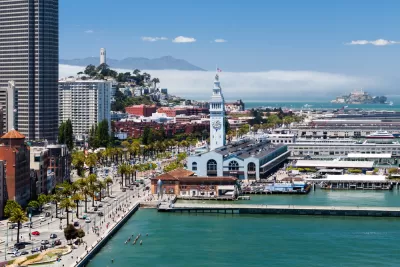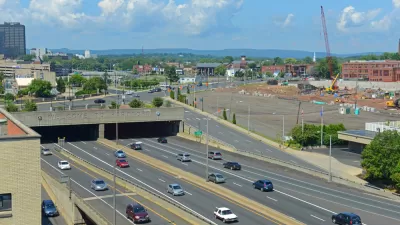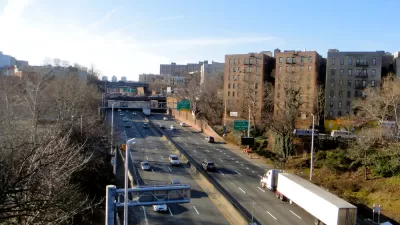A $435 billion "economic justice" bill proposed by Democrats in the U.S. Senate includes $10 billion for projects that remove highways and build community-oriented assets in their place.

Kea Wilson reports: "Shortly before the holiday recess, then-Senate minority leader Chuck Schumer and a coalition of 25 Democratic senators introduced a $435 billion economic justice bill called S5065 that included a $10-billion pilot program aimed at helping communities tear down urban highways, and rebuild the surrounding neighborhoods with the needs of underserved communities in mind."
The "Restoring Neighborhoods and Strengthening Communities Program," known among advocates as the "Highways to Boulevards" initiative, would only be available in areas with large numbers of low-income residents and people of color.
The program is designed to avoid a top-down planning approach to the process of rebuilding. "Perhaps most critically, the initiative would make significant funds available specifically for the 'community engagement and capacity building' necessary to identify what underserved residents actually want to do with all the valuable land freed up when freeways are torn down," according to Wilson.
The program would also enable the creation of community land trusts. "[A]dvocacy groups, like Transportation for America, have heralded community land trusts as an essential companion to tear-down grants," according to Wilson.
The article includes a lot more detail about the benefits of tearing down urban highways and includes some speculation about how much progress can be made to advance the cause under the Biden administration and with Pete Buttigieg at the helm of the U.S. Department of Transportation.
FULL STORY: Senate Considering $10B for Highway Removal

Planetizen Federal Action Tracker
A weekly monitor of how Trump’s orders and actions are impacting planners and planning in America.

Congressman Proposes Bill to Rename DC Metro “Trump Train”
The Make Autorail Great Again Act would withhold federal funding to the system until the Washington Metropolitan Area Transit Authority (WMATA), rebrands as the Washington Metropolitan Authority for Greater Access (WMAGA).

DARTSpace Platform Streamlines Dallas TOD Application Process
The Dallas transit agency hopes a shorter permitting timeline will boost transit-oriented development around rail stations.

Renters Now Outnumber Homeowners in Over 200 US Suburbs
High housing costs in city centers and the new-found flexibility offered by remote work are pushing more renters to suburban areas.

The Tiny, Adorable $7,000 Car Turning Japan Onto EVs
The single seat Mibot charges from a regular plug as quickly as an iPad, and is about half the price of an average EV.

Supreme Court Ruling in Pipeline Case Guts Federal Environmental Law
The decision limits the scope of a federal law that mandates extensive environmental impact reviews of energy, infrastructure, and transportation projects.
Urban Design for Planners 1: Software Tools
This six-course series explores essential urban design concepts using open source software and equips planners with the tools they need to participate fully in the urban design process.
Planning for Universal Design
Learn the tools for implementing Universal Design in planning regulations.
Municipality of Princeton
Roanoke Valley-Alleghany Regional Commission
City of Mt Shasta
City of Camden Redevelopment Agency
City of Astoria
Transportation Research & Education Center (TREC) at Portland State University
US High Speed Rail Association
City of Camden Redevelopment Agency
Municipality of Princeton (NJ)





























